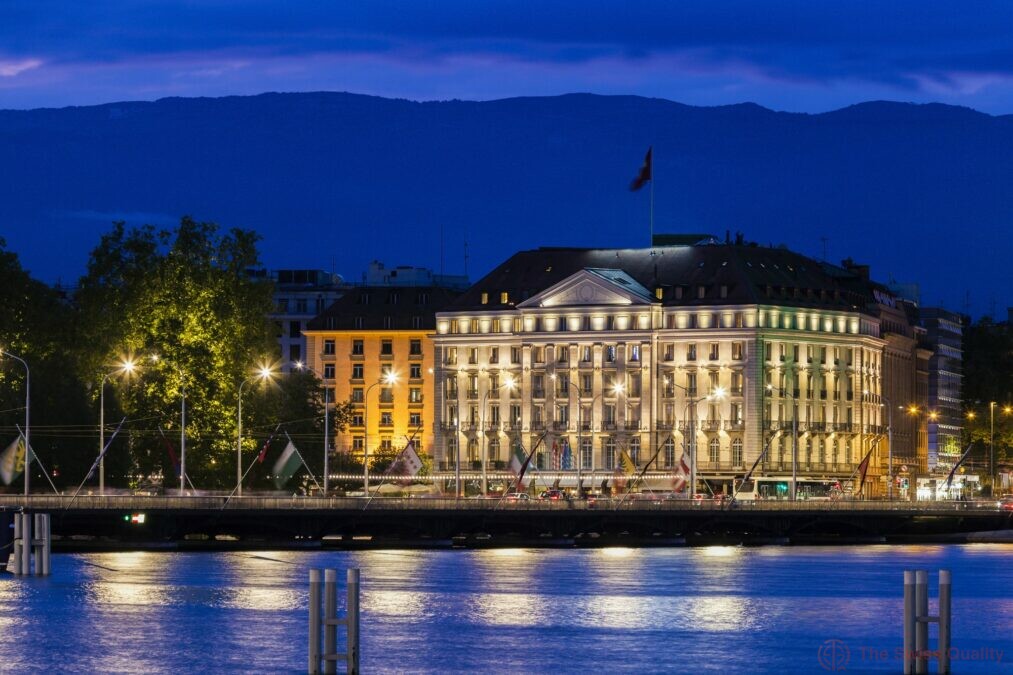Addressing Regulatory and Technological Hurdles
The Concept of Floating Urban Areas
The challenges of establishing floating urban areas in international waters are multifaceted, requiring innovative solutions and robust regulatory frameworks. As cities like Riyadh and Dubai continue to grow, the idea of expanding urban spaces into the sea is gaining traction. These floating urban areas could alleviate land scarcity, offer new opportunities for sustainable development, and provide a unique living experience. However, the path to realizing these ambitious projects is fraught with challenges that need to be carefully addressed.
Floating urban areas, or floating cities, are envisioned as self-sufficient, sustainable communities built on platforms that float on the ocean. These cities would incorporate advanced technologies to ensure they are environmentally friendly and resilient to climate change. The concept has gained attention due to its potential to solve urban density problems and create new living spaces without encroaching on existing land. For cities like Riyadh and Dubai, which are known for their innovative urban planning, floating urban areas represent the next frontier in sustainable development.
The vision for floating urban areas includes residential, commercial, and recreational spaces, all integrated into a cohesive and self-sustaining ecosystem. These cities would utilize renewable energy sources, advanced waste management systems, and smart technologies to minimize their environmental impact. The appeal of floating urban areas lies in their potential to revolutionize urban living while addressing some of the most pressing issues of our time, such as climate change and urbanization.
Regulatory and Legal Challenges
One of the primary challenges of establishing floating urban areas is navigating the complex regulatory and legal landscape of international waters. Unlike land-based developments, floating cities would exist in a legal gray area, as international waters are not governed by any single nation. This poses significant challenges in terms of jurisdiction, law enforcement, and regulatory oversight. Establishing a clear and enforceable regulatory framework is essential to ensure the safety, security, and sustainability of these floating communities.
International maritime law, as defined by the United Nations Convention on the Law of the Sea (UNCLOS), provides some guidelines for activities in international waters. However, these laws are primarily focused on navigation, fishing rights, and resource extraction, rather than urban development. To address this gap, new regulatory frameworks must be developed to govern the establishment and operation of floating urban areas. These frameworks should address issues such as environmental protection, resource management, and the rights and responsibilities of residents.
In addition to international regulations, floating urban areas would also need to comply with national and regional laws of nearby countries. This could involve complex negotiations and agreements to ensure that floating cities do not interfere with the maritime rights and interests of neighboring states. For cities like Riyadh and Dubai, which are situated along important maritime routes, these negotiations will be crucial in ensuring the success of floating urban developments.
Technological and Environmental Challenges
The technological challenges of establishing floating urban areas are significant, as these projects require advanced engineering solutions to ensure stability, safety, and sustainability. One of the primary concerns is the structural integrity of the floating platforms, which must be able to withstand harsh ocean conditions, including storms, waves, and sea-level rise. Engineers and architects must develop innovative designs and materials that can provide the necessary durability and resilience.
Environmental sustainability is another critical challenge. Floating urban areas must be designed to minimize their impact on marine ecosystems and prevent pollution of the ocean. This includes implementing efficient waste management systems, using renewable energy sources, and ensuring that the construction and operation of these cities do not harm marine life. Advanced technologies, such as AI-driven environmental monitoring and smart infrastructure, will play a crucial role in achieving these sustainability goals.
Moreover, the logistics of supplying floating cities with essential resources, such as food, water, and energy, present additional challenges. Solutions could include the use of vertical farming, desalination plants, and floating solar farms to ensure that these cities are self-sufficient. By leveraging cutting-edge technologies and innovative design principles, floating urban areas can become models of sustainable living that address both environmental and logistical challenges.
Conclusion: Overcoming Challenges for a Sustainable Future
The challenges of establishing floating urban areas in international waters are formidable, but they are not insurmountable. By addressing regulatory, technological, and environmental hurdles through innovative solutions and robust frameworks, cities like Riyadh and Dubai can lead the way in this new era of urban development. These floating cities hold the promise of sustainable, resilient, and forward-thinking communities that can adapt to the challenges of the future.
The successful development of floating urban areas will require collaboration between governments, international organizations, private sector stakeholders, and the scientific community. By working together, these entities can create comprehensive regulatory frameworks, advance technological innovations, and ensure the environmental sustainability of these projects. The experiences and lessons learned from these pioneering developments can then be shared globally, paving the way for the widespread adoption of floating urban areas.
In conclusion, the integration of floating urban areas into the urban planning strategies of cities like Riyadh and Dubai represents a bold and innovative step towards addressing the challenges of urbanization and climate change. By overcoming the obstacles and harnessing the potential of advanced technologies, these cities can set a precedent for sustainable and resilient urban living. The future of urban development lies not just on land, but also on the water, as we explore new frontiers in creating livable, thriving, and sustainable communities.
#FloatingUrbanAreas #InternationalWaters #RegulatoryFrameworks #UrbanPlanning #Sustainability #AITechnology #ModernTechnology #BusinessSuccess #LeadershipSkills #ProjectManagement #Riyadh #Dubai

